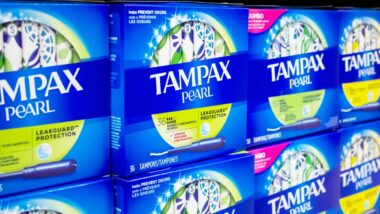Top Class Actions’s website and social media posts use affiliate links. If you make a purchase using such links, we may receive a commission, but it will not result in any additional charges to you. Please review our Affiliate Link Disclosure for more information.
Beovu Overview
Beovu (also known by its generic name, brolucizumab) is an injection medication approved by the U.S. Food and Drug Administration (FDA) for the treatment of wet age-related macular degeneration. It is manufactured by the pharmaceutical company Novartis. Like other medications, Beovu can cause side effects.
So what is Beovu? Beovu is a type of drug known as a human vascular endothelial growth factor (VEGF) inhibitor. VEGF is a signaling protein that can cause new blood vessels to form. Too much VEGF can lead to serious complications, and Beovu can help ease symptoms.
Beovu is administered via injection by a healthcare professional inside the eyeball once every three months and, thereafter, every 8–12 weeks.
After one year of treatment with Beovu, patients in clinical trials showed visual improvement similar to that of patients treated with another wet AMD medication previously approved by the FDA, aflibercept.
Beovu was approved by the FDA for the treatment of wet age-related macular degeneration (AMD) on Oct. 8, 2019.
We know what Beovu is, but exactly what is Beovu used for? Official Beovu uses are limited to the treatment of Wet AMD.
Wet AMD is a chronic eye disorder that causes vision problems such as blurred vision or a blind spot in your field of vision. The condition affects the macula—that is, the part of the retina that controls your central vision. Wet AMD is typically caused by abnormal blood vessels leaking blood or other fluid into the macula.
Wet AMD is one of two types of age-related macular degeneration. The other type (known as dry macular degeneration) is a more common issue, and it is less severe. Age-related macular degeneration always begins as the dry type, but it can in some instances turn into the rarer, more severe wet AMD. Vision loss with wet AMD worsens over time.
Symptoms of wet AMD include:
- Visual distortion (i.e. straight lines appearing bent)
- Reduced central vision in one or both eyes
- Decreased intensity or brightness of colors
- A well-defined blurry spot or blind spot in your vision field
- A general haziness in your overall vision
- Abrupt onset and rapid worsening of symptoms
Routine eye exams are the most important factor in catching wet AMD early on, which with early treatment can help ease symptoms and, in some cases, may even be able to recover some lost vision. In between routine eye exams, keep an eye out for symptoms like blurriness, light flashes, sensitivity to light, difficulty reading, and more.
FDA-approved Beovu uses are currently limited to the treatment of wet AMD, and while Beovu may legally be prescribed for other purposes, no other uses are currently widespread.
Beovu Safety and Side Effects
But what is Beovu’s safety profile? Like any medication, Beovu was approved with a variety of side effects. Some of these Beovu safety concerns are more minor, such as:
- Decreased visual acuity
- Cataracts
- Conjunctival bleeding
- Eye inflammation
- Eye bloaters
Unfortunately, other Beovu safety issues are more serious. Severe side effects associated with Beovu include:
- Eyeball infection
- Eyeball inflammation
- Retinal detachment
- Increase of the eyeball pressure
- Forming blood clots in blood vessels
These complications were identified in Beovu safety trials and later caused three other trials to be halted due to concerns over safety.
Beovu FDA Label Update
Less than a year after the Beovu FDA approval, the FDA then approved an update to the label, adding a new subsection. Now, the Beovu FDA warnings and precautions section includes the risk of retinal vasculitis and/or retinal vascular occlusion.
Retinal vasculitis is an inflammation of the tiny blood vessels in the retina. Retinal vasculitis can range from very mild to severe, from minimal vision loss to complete blindness.
Retinal vascular occlusion is a condition in which the small veins carrying blood out of the retina get blocked with a buildup of blood or other fluids, which can prevent proper light filtration and lead to issues like sudden blurred vision or vision loss.
The Beovu Novartis label update came after the company had been alerted to some Beovu safety concerns, including reports of retinal vasculitis and retinal vascular occlusion in 14 patients who had received the drug, according to a news release from the company.
Although the FDA approved a label change, there is no Beovu recall as of June 2021.
Lawsuits Filed Over Beovu
Some patients may experience serious side effects that they were not adequately warned about, and may be able to file a Beovu Novartis lawsuit and pursue compensation.
One Beovu Novartis lawsuit was already filed by a former scientist for the company who alleged she was retaliated against after advising the company to correct misinformation about a side effect seen in clinical trials.
According to the lawsuit, the former employee alleged that Novartis underreported the rates of ocular inflammation linked with Beovu in clinical trials in order to make the drug appear to be similarly safe as its competitors. When she pointed this out, however, the scientist claims she was improperly fired.















